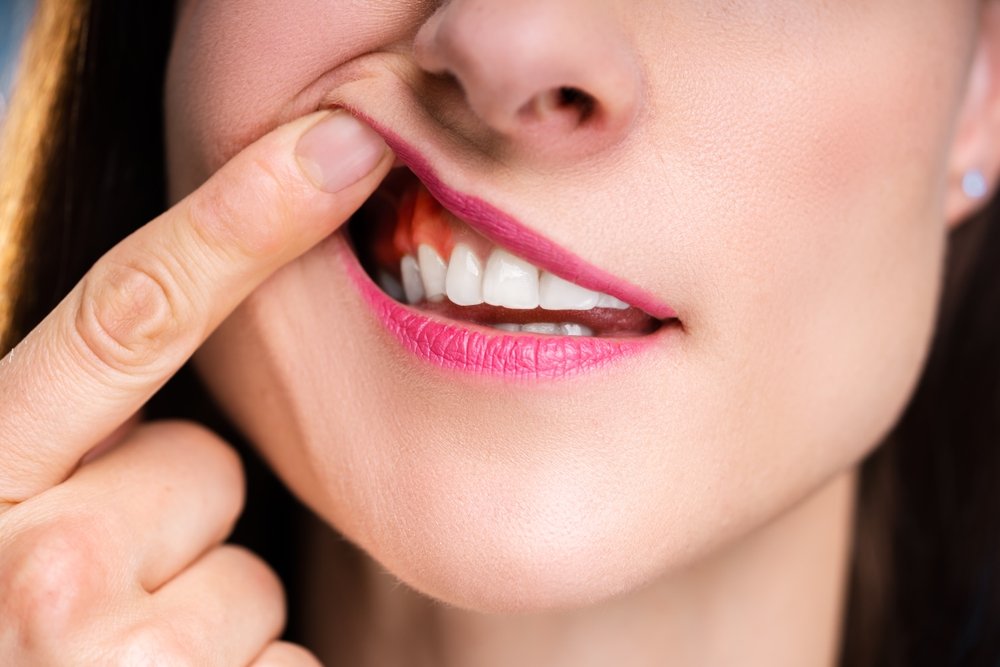Denture sores appear as painful lesions caused by ill-fitting dentures. They can lead to discomfort and difficulty eating.
Denture sores, also known as denture stomatitis, can affect anyone who wears dentures. These sores develop when the denture doesn’t fit properly, causing friction against the gums. Poor oral hygiene and prolonged denture wear can exacerbate the issue. Symptoms typically include pain, swelling, and redness in the affected areas.
It’s essential to address these sores promptly to prevent further complications, such as infections. Regular dental check-ups ensure dentures fit correctly and maintain oral health. Proper cleaning and care of your dentures can significantly reduce the risk of sores. Understanding this condition helps wearers maintain comfort and enjoy a better quality of life.
Identifying Denture Sores
Denture sores can be uncomfortable and painful. They often occur due to improper fitting.
Common signs of denture sores include:
- Redness in the affected area.
- Swelling and tenderness.
- Blisters that may form.
- Pain while eating or speaking.
Different types of denture irritations include:
| Type | Description |
| Pressure Sores | Caused by constant pressure from the denture. |
| Allergic Reactions | Result from materials in the denture. |
| Fungal Infections | Can develop in moist areas under the denture. |
Causes Behind Denture Sores
Ill-fitting dentures can cause pain and irritation. They may rub against the gums, leading to sores. Regular adjustments are essential to ensure a good fit.
Poor dental hygiene contributes to denture sores. Bacteria can build up on dentures. Cleaning them daily helps prevent infections and discomfort.
Allergic reactions to denture materials can also cause sores. Some people may react to acrylic or metal. Choosing hypoallergenic materials can help avoid this issue.
Visual Guide To Denture Sores
Denture sores can appear due to various factors. Early signs include redness and swelling. Discomfort or pain may occur when wearing dentures. Look for small blisters or areas of irritation. These symptoms indicate the need for attention.
As the condition progresses, sores can become more serious. The skin may break, leading to ulcers. Infected areas may ooze or bleed. Pain often increases during this stage. It is essential to seek dental advice promptly.
Complications From Untreated Sores
Untreated denture sores can lead to serious problems. One major concern is the risk of infection. Bacteria can easily enter through these sores. This can cause pain and swelling.
Another issue is the long-term dental impact. Chronic sores may change how dentures fit. This can lead to more sores or discomfort. Regular check-ups are important to avoid these problems.
| Complication | Effect |
| Infection | Increased pain and swelling |
| Improper fit | More sores and discomfort |
Immediate Relief Measures
For immediate relief from denture sores, try simple home remedies. Rinse your mouth with warm salt water. This can help reduce pain and swelling. Applying aloe vera gel can soothe the affected area. Use a cotton ball to gently apply it.
Over-the-counter solutions can also provide relief. Look for oral gels that numb the pain. These products often contain benzocaine or lidocaine. Antiseptic mouthwashes can help clean the sores. Be sure to follow the instructions on the label for best results.
Professional Treatment Options
Many people experience denture sores. These sores can cause pain and discomfort. Seeking professional treatment is very important.
Adjustment and refitting of dentures can help. A dentist will check the fit and make changes. This process can reduce pressure on sore areas.
Medications can also be beneficial. Topical treatments can numb the pain and promote healing. Some may need oral medications for severe discomfort. Therapies like saltwater rinses can soothe the sores.
Prevention Strategies
Proper denture care is essential for preventing sores. Clean dentures daily with a soft brush. Use a mild soap or denture cleaner. Rinse well to remove any residue. Soaking dentures overnight helps keep them fresh.
Regular dental check-ups play a key role in denture health. Visit your dentist at least twice a year. They can check the fit of your dentures. Proper fitting reduces the chance of sore spots. Ask your dentist about any concerns you may have.
Living Comfortably With Dentures
Adjusting to new dentures can be challenging. Many people experience denture sores initially. Taking care of your mouth is very important. Here are some useful tips:
- Wear dentures for short periods at first.
- Use denture adhesive to help secure them.
- Keep your mouth clean with gentle brushing.
- Stay hydrated to help with dry mouth.
- Avoid hard or sticky foods that can irritate your gums.
Regular visits to the dentist are essential. They can check for sore spots and adjust dentures if needed. Comfort comes from finding what works best for you.
Frequently Asked Questions
What Causes Denture Sores?
Denture sores are typically caused by ill-fitting dentures, poor oral hygiene, or prolonged wear. Bacteria can thrive in these conditions, leading to inflammation and irritation. It’s essential to ensure your dentures fit well and maintain proper oral hygiene to prevent sores from developing.
How To Prevent Denture Sores?
To prevent denture sores, ensure your dentures fit correctly. Regularly clean your dentures and your mouth. Take breaks from wearing them, especially at night. Additionally, consult your dentist for adjustments or if you experience persistent discomfort.
Are Denture Sores Contagious?
No, denture sores are not contagious. They result from pressure, friction, or poor hygiene rather than an infectious agent. Maintaining good oral care practices can help prevent sores from forming, but they cannot be transmitted to others.
How To Treat Denture Sores At Home?
To treat denture sores at home, rinse your mouth with warm saltwater. Apply a topical antiseptic to the sore area for relief. Avoid wearing dentures for a while to promote healing. If soreness persists, consult your dentist for proper treatment options.
Conclusion
Denture sores can be painful and uncomfortable. Recognizing their appearance is crucial for early intervention. Proper care and hygiene can prevent these sores from developing. Consult a dental professional if you experience persistent pain or irritation. Awareness and timely action will help maintain your oral health and enhance your comfort.



